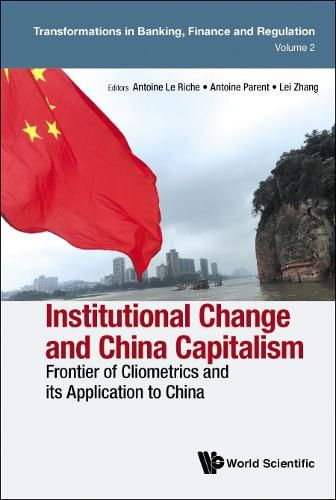Readings Newsletter
Become a Readings Member to make your shopping experience even easier.
Sign in or sign up for free!
You’re not far away from qualifying for FREE standard shipping within Australia
You’ve qualified for FREE standard shipping within Australia
The cart is loading…






This title is printed to order. This book may have been self-published. If so, we cannot guarantee the quality of the content. In the main most books will have gone through the editing process however some may not. We therefore suggest that you be aware of this before ordering this book. If in doubt check either the author or publisher’s details as we are unable to accept any returns unless they are faulty. Please contact us if you have any questions.
This edited volume is based on original essays first presented at seminars in complexity economics, Sichuan University, China, in November 2018 and May 2019, and at the 12th International Conference on the Chinese Economy, University of Clermont-Ferrand, France, in October 2019. It also includes three contributions written especially for this volume. This research benefited from three French grants ‘Hubert Curien Research Fellowship’ (Program Campus France 2019, 2020, 2021). All chapters assess the recent take-off of the Chinese economy from a historical perspective, enlarging the economic evidence that China’s capitalism is a matter of institutional revolution.Institutional Change and China Capitalism aims to provide a radically new view of the rise of Chinese capitalism by drawing on recent developments in cliometrics and complexity economics, macroeconomic dynamics, network analysis and behavioral finance to illustrate the various facets of China’s transition to capitalism. The chapters within innovate the study of China’s take-off using the frontier of research in institutional cliometrics and complexity economics. Thus, the book is structured in three sections that seek to address - empirically, theoretically, and in terms of network structure, the profound institutional change that led China to progressively adopt capitalism.Together these papers attest to the vitality of current research in cliometrics and complexity economics.
$9.00 standard shipping within Australia
FREE standard shipping within Australia for orders over $100.00
Express & International shipping calculated at checkout
This title is printed to order. This book may have been self-published. If so, we cannot guarantee the quality of the content. In the main most books will have gone through the editing process however some may not. We therefore suggest that you be aware of this before ordering this book. If in doubt check either the author or publisher’s details as we are unable to accept any returns unless they are faulty. Please contact us if you have any questions.
This edited volume is based on original essays first presented at seminars in complexity economics, Sichuan University, China, in November 2018 and May 2019, and at the 12th International Conference on the Chinese Economy, University of Clermont-Ferrand, France, in October 2019. It also includes three contributions written especially for this volume. This research benefited from three French grants ‘Hubert Curien Research Fellowship’ (Program Campus France 2019, 2020, 2021). All chapters assess the recent take-off of the Chinese economy from a historical perspective, enlarging the economic evidence that China’s capitalism is a matter of institutional revolution.Institutional Change and China Capitalism aims to provide a radically new view of the rise of Chinese capitalism by drawing on recent developments in cliometrics and complexity economics, macroeconomic dynamics, network analysis and behavioral finance to illustrate the various facets of China’s transition to capitalism. The chapters within innovate the study of China’s take-off using the frontier of research in institutional cliometrics and complexity economics. Thus, the book is structured in three sections that seek to address - empirically, theoretically, and in terms of network structure, the profound institutional change that led China to progressively adopt capitalism.Together these papers attest to the vitality of current research in cliometrics and complexity economics.